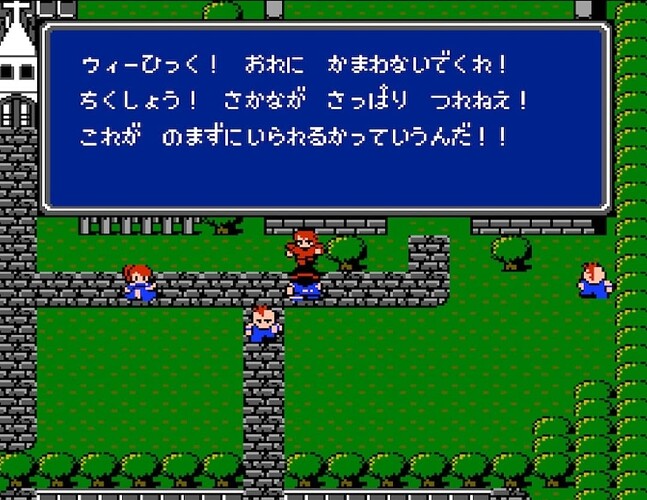This textbox has been kicking my ass, specifically the last line. I understand これが飲まずに, but everything else is giving me trouble. I’m guessing he’s saying he can’t live without drinking this, does the か after いられる make it negative? And what’s up with っていうんだ? Thanks!
I’m afraid I can’t help you, but I got interested in this myself. Is there more context to this? To me it looks like three completely unrelated sentences. Is he drunk? Do you know what is the ウィーひっく supposed to mean?
It’s a kind of hiccuping sound drunk people make
Oh, thank you! That makes sense, then. It’s like he’s rhetorically asking: “How can I live without drinking?!” Would I be correct in assuming か often comes before っていうんだ?
Seems to be more common with out the か, certainly that’s the way I’m used to seeing it
But it doesn’t change the meaning right?
Slightly different I would think in that って って - Japanese Grammar Explained | Bunpro is being used to quote the statement before it, so if you change what comes before it you change what’s being quoted. Probably better to check with someone who knows more though @Asher
I think the か in this particular expression just strengthens the rhetorical part of っていうんだ, so that rather than sounding like ‘How can I live without drinking’, it’s a little closer to ‘As if I could live without drinking’.
Edit - Just for reference, this particular か basically has the same meaning as ないだろう, in pointing out that the statement before it is surely not something that is true/possible.

